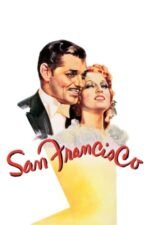The Voice That Haunts: Exploring Opera Singers on Film
Isn't there something inherently dramatic about an opera singer? It’s not just the incredible vocal power, it's the story they embody – often tragedy, passion, and a whole lot of emotion poured into every note. And filmmakers have long been captivated by that intersection of artistry and human drama. We see them on screen in all sorts of roles, from tragic figures to symbols of hope, and each portrayal offers something unique about both the art form itself and the people who dedicate their lives to it.
Think about Maria, for instance. It’s a deeply moving portrait of Maria Callas in her final years, stripped bare of the stage glamour and facing the realities of aging and regret. Seeing that legendary voice, once filling grand opera houses, reduced to fragile whispers is profoundly affecting. It reminds you that even the most celebrated performers are just people, grappling with their own vulnerabilities. I remember watching it for the first time – I was completely unprepared for how emotionally raw it would be!
But opera singers on film aren't always steeped in melancholy. Falling for Figaro offers a lighter, more hopeful take. It’s about chasing a dream, even when it means upending your entire life. The film beautifully captures the dedication and sheer hard work that goes into mastering an operatic role – something often glossed over. It's inspiring to see someone throw themselves so completely into a passion, even if it means facing considerable challenges.
Then you have films like San Francisco, where the singer isn’t just performing; she’s actively using her voice and presence to try and change the world around her. It’s a powerful image – music as a force for good in a chaotic environment. And let's not forget Christine, which uses the operatic backdrop of Vienna to explore themes of love, betrayal, and societal expectations. The drama unfolds both on and off stage, highlighting how intertwined personal lives can be with public performance.
Even films that aren’t about opera singers directly often feature them in significant ways. I'm thinking about Lepakkolinna, where the atmosphere is thick with a sense of foreboding, almost as if the music itself is warning you of impending doom.
What I find fascinating is how these films reflect our own fascination with both the spectacle and the vulnerability inherent in opera. It’s an art form that demands so much – physically, emotionally, and artistically. And when we see those performers on screen, whether they're at their peak or facing a decline, we get a glimpse into a world of intense dedication and profound artistry.
So, next time you’re looking for something to watch, consider exploring these films. They offer not just entertainment but also a window into the captivating lives of opera singers – individuals who use their voices to tell stories that resonate long after the final note fades away.






































